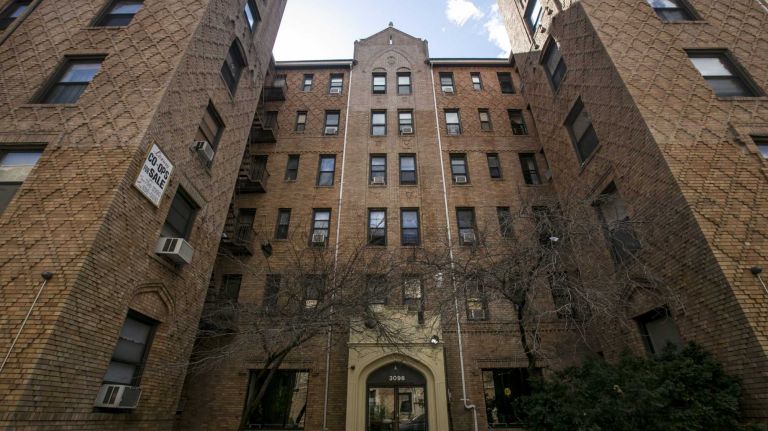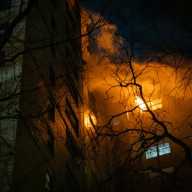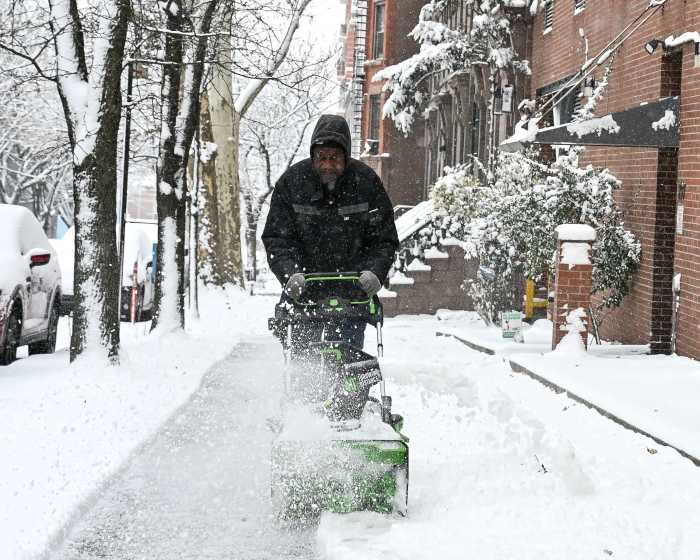
New Yorkers who call 311 because of perilous conditions in their buildings may find themselves waiting more than 24 hours before a city inspector shows up, a new audit contends.
The audit by the office of Comptroller Scott Stringer found that inspectors with the Department of Housing and Preservation often failed to respond to emergency housing complaints in a timely manner over a two-year period.
But HPD disputed the findings, saying “many factors” affect the “timeliness” of response. It also said the audit didn’t reflect the agency’s current operations.
The audit, obtained exclusively by amNewYork, found that nearly 93% of “dire” complaints to the city’s Department of Housing Preservation and Development were not dealt with in the 12-hour response time the agency has set for itself. The agency has over 400 inspectors tasked with responding to a barrage of tens of thousands of annual complaints.
The audit, which covered fiscal years 2012 and 2013, concluded that of 17,852 dire complaints, 88.5% were dealt with in one to 5 days. “Dire” complaints can include anything from collapsed ceilings to collapsed fire escapes, electricity shut offs or disruptions to a building’s water supply.
The comptroller’s office, which focused on HPD’s handling of housing maintenance complaints, also found that the housing agency had set no official standards for responding to problems; didn’t consistently re-inspect lead paint violations within 14 days; and saddles its inspectors with outdated computer technology that forces them to spend a majority of their time in their offices rather than in the field.
“Millions of New York families depend on HPD to make sure their buildings are safe and livable,” Stringer said in an emailed statement to amNewYork. “Unfortunately the agency fails to meet even the goals it sets for itself to address complaints, leaving renters vulnerable to collapsed ceilings, missing smoke detectors, no heat in the winter, and a host of other serious problems.”
But the agency disputed the audit’s main finding that maintenance complaints were not dealt with in a timely manner. “There are many factors — including weather, disasters and new initiatives — that may affect the actual timeliness of our code enforcement response,” the agency said in its response.
“We take all issues of code compliance and enforcement of the city’s housing codes extremely seriously and we intend to continue our work to ensure this city’s tenants have safe, stable homes,” said HPD spokesman Eric Bederman.
He said the agency had already planned to hire an additional 49 new inspectors and supervisors and has begun restructuring operations and exploring how to upgrade its technology, facts which are not reflected in the audit that largely analyzes response by the agency under the previous mayoral administration.
HPD agreed with 11 of the 21 recommendations made by the comptroller’s auditors, for instance the need to develop guidelines for timely inspection completions; improve technology for inspectors; and to develop a new report to track the timeliness of re-inspections of certified lead violations.
“As an agency we are always striving to improve, and will continue to implement new technologies, polices and systems to further our effectiveness in protecting the city’s housing stock and responding to tenant complaints,” Bederman said.
Jonathan Furlong, a senior tenant organizer with the Association for Neighborhood and Housing Development, said the report was “troubling” but argued that the agency is not entirely to blame because the city has “chosen not to double-down on funding.”
“I think our response should be, ‘What can we do? What can the city do to help lift up this agency and get it really working at its full capacity?’ They do incredible work with the resources they have,” he said.







































